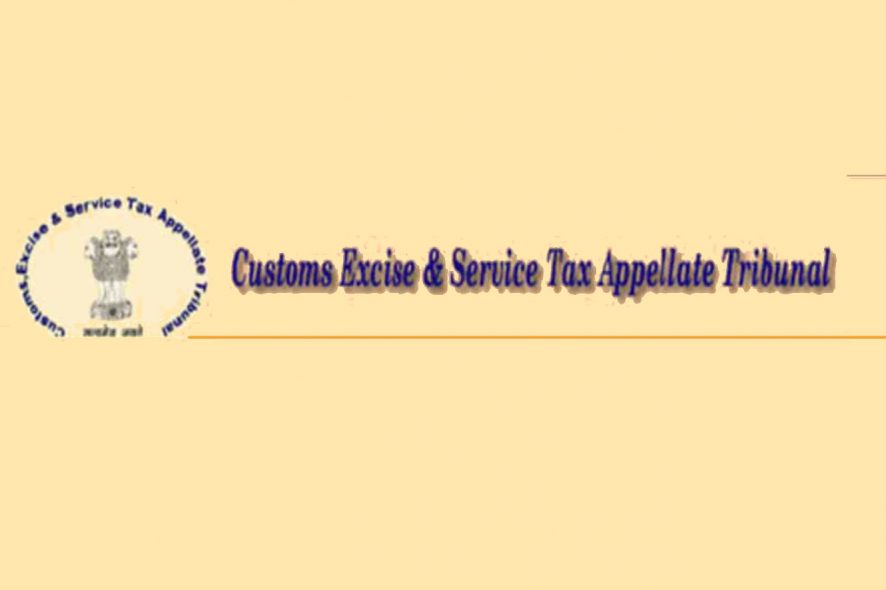Customs, Excise and Services Tax Appellate Tribunal (CESTAT): P. Dinesha (Judicial Member) allowed the appeals which were filed after the Adjudicating Authority vide Orders-in-Original dated 27-09-2019 while partly sanctioning the refund, directed the same to be credited to Consumer Welfare Fund on the ground that the appellant had not proved that the incidence of Duty had not been passed on to the customers. The First Appellate Authority had dismissed the appeal.
Ms D. Naveena, Advocate appearing for the assessee-appellant submitted that:
(i) The Adjudicating Authority relied solely on the report of the Jurisdictional Range Officer (hereinafter referred to as ‘JRO’) dated 26.08.2019, copy of which was not furnished to the appellant;
(ii) The refund claimed was not collected from the/ passed on to the customers of the appellant either by invoices or by debit notes;
(iii) That the expenditure booked which was not shown as ‘receivables’ was a fresh ground not raised by the First Appellate Authority and hence, the Commissioner (Appeals) has clearly travelled beyond the scope of the Orders-in-Original;
(iv)There is a Chartered Accountant Certificate issued by the qualified Chartered Accountant to the effect that no incidence of interest was passed on to the customers of the appellant;
(v) The appellant had also filed a letter dated 14.08.2019 wherein also the appellant had categorically submitted as having not passed on the Duty element to its customers, etc.
Ms T. Usha Devi, Departmental Representative appearing for the Revenue, submitted that the appellant primarily has not proved that the Duty element has not been passed on to its customers.
The Court observed that there were two main things
(1) Certificate of the Chartered Accountant though taken note of, has not been deliberated upon by the Officers nor have they deliberated upon the undertaking letter dated 14.08.2019 filed by the appellant; and
(2) the letter dated 26-08-2019 of the JRO relied upon by the Adjudicating Authority wherein he has claimed to have examined the invoices – most of which noticed to have passed on the incidence of Duty to customers – gives an impression that either he has not examined all the invoices, or that only some of the invoices indicate the passing on of Duty.
The Tribunal emphasized that sole reliance placed on the JRO’s report by the Adjudicating Authority, unfortunately, has not been put across for rebuttal, which is also an undisputed fact and the same has been used to draw a presumption against the appellant which is a serious flaw not only of the procedure, but also of the principles of natural justice.
The Tribunal further stated that The judgement of the Hon’ble Supreme Court relied upon by the Adjudicating Authority in the case of Sahakari Khand Udyog Mandal Ltd. v. C.C.E. & Cus. reported in 2005 (181) E.L.T. 328 (S.C.), a paragraph of which has been extracted in the Order-in-Original, clearly indicates that the Hon’ble Court had ruled that the doctrine of unjust enrichment could be invoked to deny benefit to which a person is not otherwise entitled, which by itself forms a separate category and the same is not applicable in rem and this was not the case here.
The Tribunal while allowing the appeals held that in the absence of any findings to the contrary, the onus shifts to the Revenue and the Revenue has miserably failed to discharge its onus. Therefore, the presumption as to the preponderance of probabilities is heavily stacked against the Revenue. Law has prescribed Accounting Standards that is required to be followed consistently. Books of Accounts are therefore to be maintained accordingly and, of course, following a consistent method of accounting.[Johnson Lifts (P) Ltd. v. Commr. of G.S.T. and Central Excise, 2021 SCC OnLine CESTAT 325, decided on 08-07-2021]
Suchita Shukla, Editorial Assistant has reported this brief.







